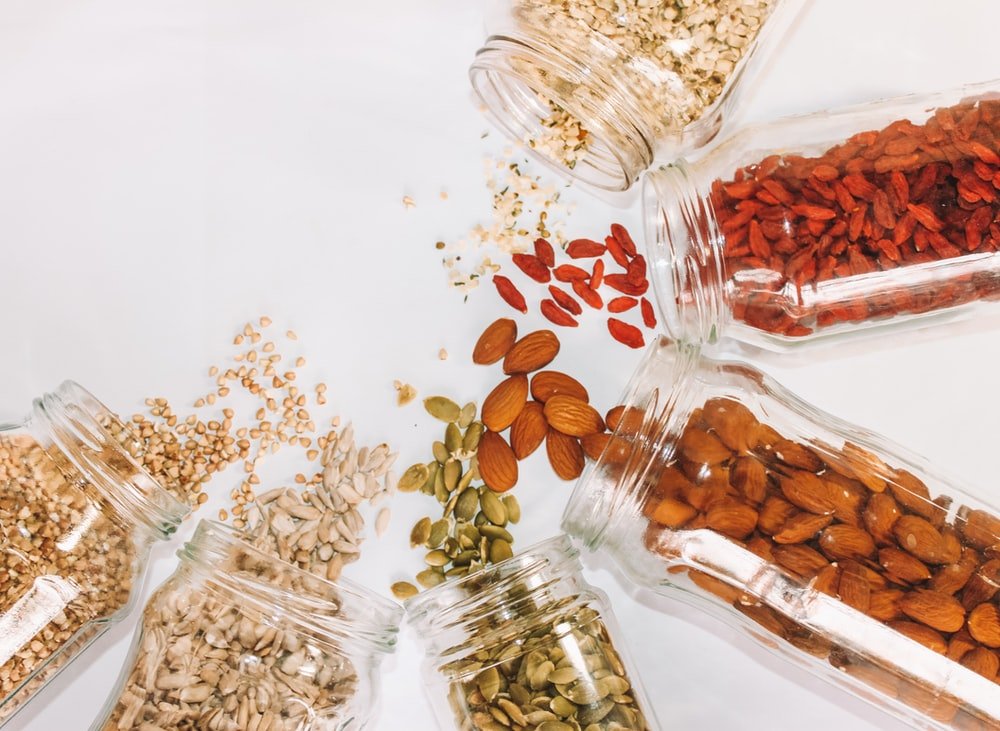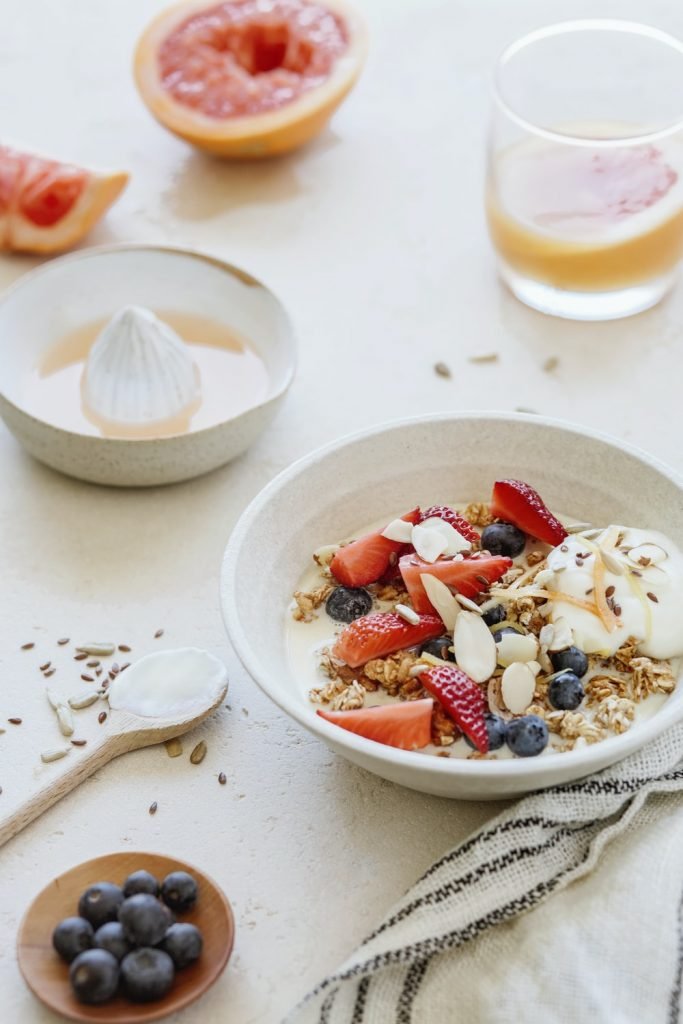
by Dr Neha | Mar 29, 2021 | Health
Complex carbohydrates provide fibre and nutrients through fibre, polyphenols, essential vitamins and minerals. Replacing carbohydrates with other macronutrients such as protein and fat can affect brain function. Instead of simply cutting them out of your diet, you should think about the quality and quantity of carbohydrates you are consuming in your daily life. There is no doubt that reducing the added sugar from your diet is extremely beneficial, especially for weight loss.
But supplying the body with pep is not the only role that carbohydrates play, and in this article, we will look at what happens if you don’t consume enough carbohydrates in your diet plan. Complex carbohydrates, which consist of complex sugars, fibre, polyphenols, vital vitamins and minerals, have many important health benefits, even though they contain complex sugars and calories. Carbohydrates, found in fruits, vegetables, whole grains, nuts, legumes, seeds and other foods, are the most important energy source of our body.
While you are enjoying your meal, the carbohydrates in the food you eat are broken down into small units of sugar, and these smaller units are absorbed via the digestive tract and into the bloodstream. Others are considered more important, such as vitamins, minerals, fibre, protein, vitamins and minerals.
Why Are Carbohydrates Important?
The truth is that carbohydrates are an important part of your diet and are found in a wide range of healthy foods, including fruits, vegetables and whole grains. Understanding the different types of carbohydrates in your food, as well as choosing the right ingredients, can ensure that you benefit from all the health benefits that these macronutrients offer. Let’s take a look at how these important nutrients can affect your health.
Research shows that carbohydrates are an important part of a healthy diet that provides vital nutrients that your body needs for optimal function. Although not all carbohydrates are the same, the best carbohydrates are those that keep the bodyweight healthy and makes you feel good. The added sugars in ready-to-eat products are also listed in the “simple carbohydrates” category but are not as healthy.
Which Carbohydrate Is Unhealthy For You?
These “simple carbohydrates,” also known as refined carbohydrates, are highly processed and almost always have no nutritional value. Although carbohydrates in your diet are good for you and most carbohydrates contain the fibre you need daily, it is important to consider which carbohydrates are considered unhealthy and why. Carbohydrates are an essential part of our diet plan and are found in all kinds of foods we love, such as fruits, vegetables, meat, dairy products, eggs, nuts and seeds.
Studies have shown that replacing saturated fat in processed foods with other carbohydrates such as whole grains, legumes, nuts and seeds is associated with an increased risk of obesity, diabetes, heart disease, high blood pressure and high cholesterol. Carbohydrates function as a relatively fast source of energy and simple carbohydrates are quickly digested and absorbed. This results in higher energy content than complex carbohydrates, which provide more sustainable energy.
These carbohydrates are very nutritious foods, including legumes, nuts, seeds, fruits and vegetables. These are broken down in the body into carbohydrates such as whole grains, whole grain flour, brown rice, oats and other whole foods. The types found in sugar, processed cereals and everything baked with white flour are quickly broken down – they contain little or no fibre, and are deprived of nutrients which cause blood sugar and insulin levels to soar.
When eating cereals as part of your diet, make sure you eat 100 per cent whole grains, such as whole grains, whole barley, oats, brown rice, wheat flour and brown sugar.
Net carbohydrates are typically used for products that exclude fibre, sugar and alcohol, or both fibre and sugar. Products that also contain added sugars, such as sweeteners, preservatives, refined carbohydrates and distinct carbohydrates, are not the healthiest alternatives.
Carbohydrate foods that contain them increase blood sugar levels and can cause diabetes, heart disease and other health problems. A glycemic index causes a decrease in the diet, such as a low-carb, high-fat or high-carbohydrate diet, which is typically limited to foods with a high carbohydrate content (e.g. fruits, vegetables, whole grains, legumes, nuts and seeds). Low- Carbohydrate foods such as nuts, seeds, fruits and vegetables are naturally low in the glucose index, but high in carbohydrates.
While carbohydrates have a reputation for being unhealthy and fatty, certain types can help you in weight loss by helping you control your waistline. This is particularly beneficial in terms of weight, due to the high fibre content of carbohydrates in fruits, vegetables, whole grains, legumes, nuts and seeds. Fibre moves quickly through the body, making you feel full for longer, while you get fewer cravings between meals. As you can see the various benefits of consuming carbohydrates, start including them in your daily diet and see the results!

by Dr Neha | Nov 8, 2020 | Health
Gut health is an important aspect you need to look upon. Live fermented foods are a natural probiotic to eat or drink, and studies have indicated that probiotics can help restore gut bacteria to healthy levels that protect against inflammation. All the above-mentioned probiotics thrive in the gut, as do probiotics, many of which are indispensable for healthy gut health and a healthy immune system.
WHERE TO START?
These are just some foods you can append to your diet to promote your gut health. However, the Western diet is full of food that promotes healthy gut flora, such as fruits, vegetables, nuts, seeds, and whole grains.

Eating lots of fruit, vegetables and a variety of cereals creates a joyful and healthy microbial in your gut. The microfilm that lives in the gut is a collection of microorganisms that play a crucial role in digestion, mood, and life.
To maintain a beneficial balance of these microorganisms, you should start with a healthy diet that includes fruits, vegetables, cereals, whole grains, and beans, which are rich in fiber.

GOOD GUT HEALTH, HOW DOES IT WORK?
Studies have shown that taking probiotics can make a major contribution to supporting a healthy gut microbiome and prevent intestinal inflammation. Foods that can significantly improve gut health include fruits, vegetables, cereals, whole grains, nuts, seeds, fermented vegetables, and legumes.

Probiotics have been shown to help the gut microbiome repair itself. The body has the ability to grow bad bacteria and replace them with useful ones by simply eating foods that consist of probiotics.
Natural healing can also be achieved by using clinically proven ingredients such as probiotics, prebiotics, and digestive enzymes. Daily Digestive Essentials is a great way to work with the gut to improve its overall health with steady use.
We tend to utilize the words “improve” and “restore” interchangeably when we refer to gut health, but there is actually a big difference between the two. People want to talk about probiotics and more fiber, and while both are still important components of gut health, they don’t do much for gut health. Dehydration stops the fiber from doing its job properly and can lead to constipation. When you are dehydrated, you also dry out yourself, which should not be overlooked and is still an important part of gut health.
DRINK LOTS OF WATER!
Dehydration impairs intestinal regulation, impairs cognition, causes drowsiness and energy deficiency, increases hunger, and promotes overeating. Dehydration causes nausea and vomiting, increases blood pressure, impairs digestion, impairs cognition, and causes diarrhea and constipation.
Once you are adequately hydrated, make sure you eat high-fiber fruits and vegetables. Exercise plays a major role in gut health and regularity. A healthy diet with fiber-rich, unprocessed foods such as fruits, vegetables, nuts, and seeds – gives your gut the right kind of bacteria to grow. Dietary fiber foods give bacteria the nutrients they need to grow while eating foods like rice with probiotics like yogurt or kefir helps to add live microorganisms that the gut needs to stay healthy. Add many plants to your diet, especially those with high fiber content such as beans, lentils, peas, and nuts.
A hallmark of a healthy gut is a balanced gut microbiome, and the omega-3 fatty acids found in oily fish such as salmon have been shown to correlate with greater gut microbial diversity. Even adding a portion of fish can help your gut bacteria thrive, so eat more whole foods and opt for a portion of high-quality whole food that contains low carbohydrates.
Probiotic supplements can help gut health by adding beneficial bacteria to your gut microbiome. Studies have shown that probiotics can help repair gut bacteria at healthy levels that guard the body against inflammation. Live fermented foods are a natural probiotic that you can not only eat but drink, and it is a great source of vitamins and minerals.
START EATING NUTRITIOUS FOOD RIGHT AWAY!
Eating unhealthy gut flora can affect your health by reducing your gut bacteria and increasing the risk of heart disease, diabetes, high blood pressure, and other health problems.
You can easily incorporate intestinal flora – and incorporate enzymes such as those found in the labeled probiotics into your diet. To get this probiotic, eat fruits, vegetables, nuts, seeds, legumes, and whole grains, as well as fruits and vegetables with high fiber content.

Probiotics are also found in fermented dairy products such as milk, yogurt, and yogurt paste, as well as dairy products such as yogurt, cheese, and dairy products. Here are some delicious recipes you can make out of dairy products.
It is important to include probiotics in your daily diet particularly if you eat fresh fruits and vegetables, many of which are sources of probiotics. One of the things you may have heard about in the digestive tract literature is that increased fiber is of the utmost importance to keep your digestive tract running smoothly. Like grains, nuts are full of fiber and help to improve your gut bacteria.
IN SHORT
Never take your gut health lightly as it is a powerhouse to millions and millions of bacterias that work hard for your well being. Even a little imbalance to it can bring a huge difference to your lifestyle.
Just by adding a few effective changes to your daily life like adding cardio to your day-to-day time, maintaining a fit diet by including lots of fiber, dairy products, etc. Just remember one thing that your health and well-being are in your hands. One step at a time… Good luck!
For more such articles, click here!







Recent Comments